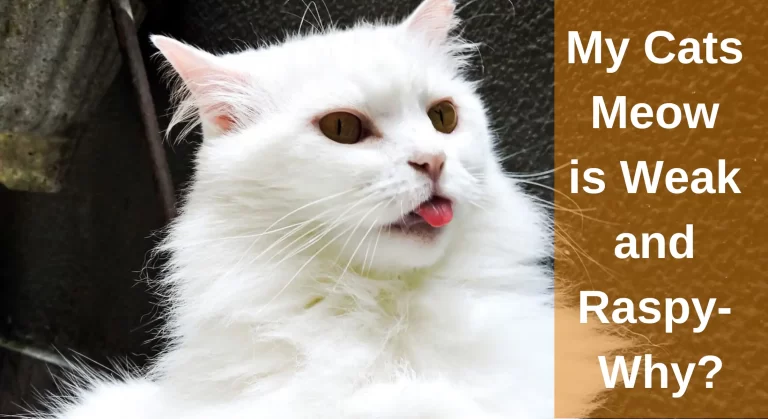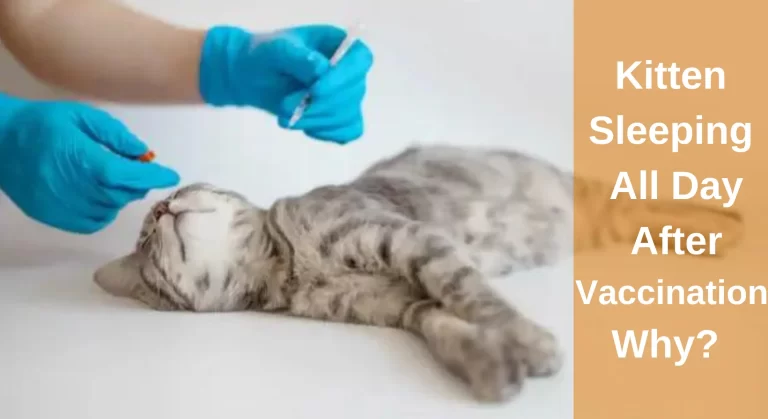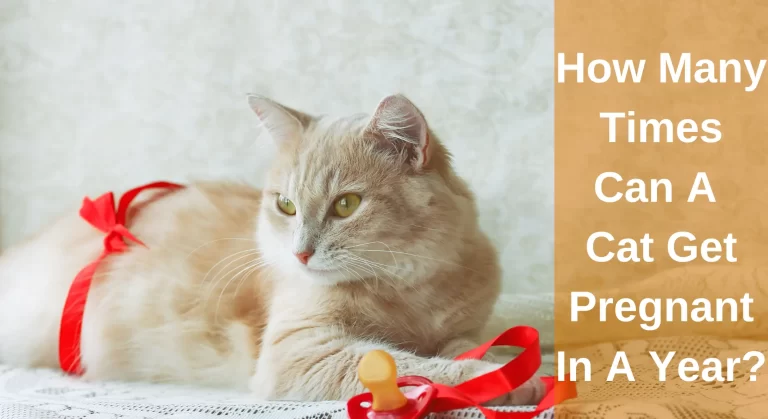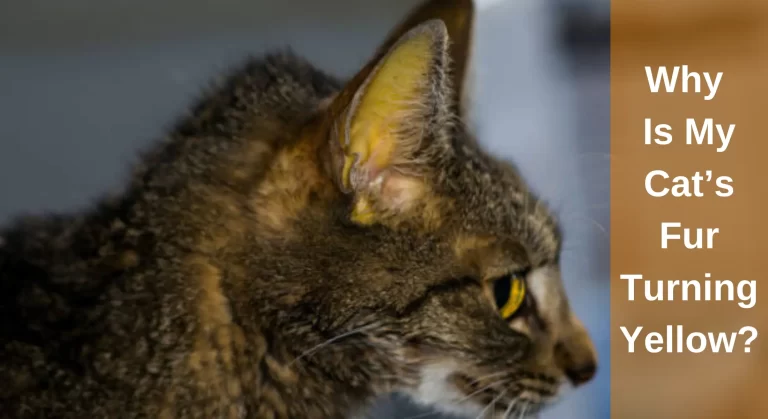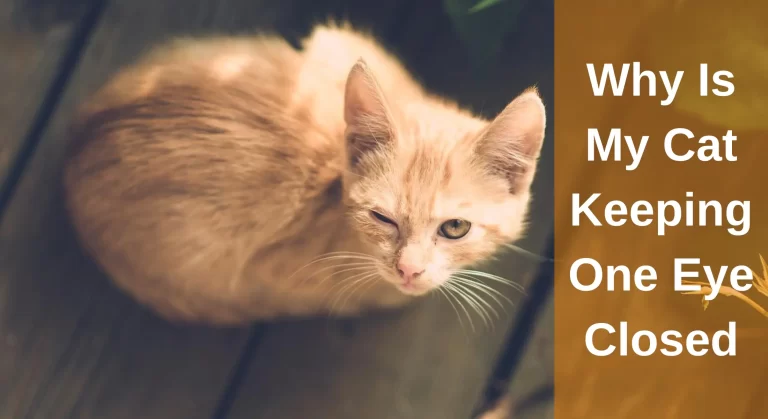What Happens If You Cut A Cats Whiskers?
While some cats have longer whiskers than others, all cats have them. You may shave your cat’s extremely long whiskers. A brief haircut immediately gives your cat a sharper appearance and tames its wild appearance.
No matter how long their whiskers grow, the whiskers on your cat should never be cut. Cats use their whiskers, which may at first glance appear to be hairs, every day for sensory purposes. If you cut them it may cause sensory information to be lost. Also, it’s quite painful.
So, What Happens If You Cut A Cats Whiskers? Why is having whiskers so important? What steps should you take if you accidentally trim your cat’s whiskers? You will find out all the answers in this article.
Actually, cats’ whiskers have so many useful functions that trimming them isn’t a good idea. Furthermore, you should never dye a cat’s whiskers or curl them to match its coat. You must avoid touching your cat’s whiskers. When cuddling, it’s allowed to sometimes make contact, but pulling or purposely touching the whiskers is strictly prohibited. These fragile hairs might send upsetting sensory information to your cat’s brain due to their sensitive nature.
You should now be able to understand the five functions of a cat’s whiskers and why it is important to protect them from harm. What happens when a cat loses its whiskers and the reasons you should never clip them are explained in detail here.

Why You Should Not Cut A Cat’s Whiskers Benefits of Cat’s Whiskers
The cat has more whiskers on its body than it has on its snout’s two sides put together. Cats also have whiskers on the backs of their front legs, on the chin and jawline, and behind their eyes. A cat will delicately scratch items with its whiskers as it investigates. The cat may learn useful information from the sensory input, such as the size and proximity of items.
Your pet’s whiskers act as an early warning system, which may explain why it is so difficult to sneak up on him. The air currents will slightly shift when someone or anything is nearby, alerting the cat to their presence. The capacity of the whiskers to track the movement of prey while the cat is rushing is one of the traits that make cats such adept hunters.
Proprioceptors, a type of sensory organ found in the cat’s whiskers, also transmit signals to the brain. Proprioceptors, in addition to vision, give cats information about the direction of their bodies and paws, allowing them to do those death-defying, acrobatic jumps from one location to another.
A cat’s movement and sense of direction can occasionally become impaired when its whiskers are removed. The cat won’t have a whisker, even if one that was gone reappears.
A cat sheds all of the hair on its body, including its whiskers which is quite normal. On the other hand, trimming them is never a wise idea. When a cat’s whiskers are clipped, it feels bewildered and afraid.
Cutting them is like putting on a blindfold; it prevents them from seeing their surroundings.
How Do Cats Whiskers Get Cut and What Happens?
Whiskers are extremely sensitive when they are related to the neurological and muscular systems. They bolster perception and practicality. In addition, if the source brushes up against them when they are blind, they may sense the source’s proximity, form, and size. Even the slightest motions, like those in a breath, may be detected by them. This aids in the pursuit of their prey as well as the detection of their risk or threat. They typically aid in mood communication and opening size estimation. There is a greater danger of injury and trauma when their senses and emotions are cut off.
What Happens if You Cut a Cat’s Whiskers?
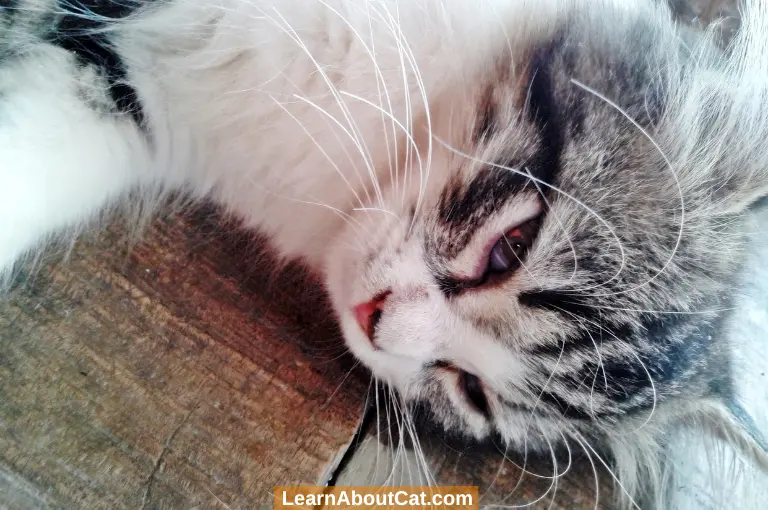
1. Disorientation
Cat’s whiskers serve as a form of navigation, alerting them of their location, nearby people, and possible passageways. When your cat’s whiskers are removed, these skills are lost, which leads to confusion and diminished spatial awareness.
Because they are used to having such highly developed senses, cats may get concerned if they start to lose their sense of spatial awareness. Their stress levels will grow as a result of constant surprises that make them leap. Their satisfaction in life has been significantly lowered by the simple act of removing their beards.
2. Discomfort and Pain
Are cat whiskers painful to cut? While cats definitely experience pain when having their whiskers cut, it is not the type of bodily discomfort people would recognise. The nerves are not really cut through when a cat’s whiskers are clipped. Since the nerves are in the follicles rather than the hair strands, shaving whiskers cause no physical discomfort.
Although extraordinarily sensitive, whiskers can detect even the smallest changes in airflow. In fact, some cats find it unpleasant for their whiskers to even touch the bowl’s sides when they drink, therefore they prefer flowing water. It acts as a reminder of how delicate a cat’s whiskers are to the touch even if you may buy cat bowls to avoid this issue.
3. Growing Accident Rate
Cats are far more inclined to misbehave if their whiskers are missing or damaged. Due to their diminished spatial awareness, it is simple for your cat to become entangled between two fences and damage themselves while seeking to escape. When falling from a height, your cat is more likely to get injuries due to loss of balance.
Additionally, cats with clipped whiskers have worse night vision. As a result, there is a greater possibility that they may be attacked by an opportunistic predator or run over by a vehicle. Without whiskers, your cat is less protected, leaving it more vulnerable.
4. Declining Deficit
Another benefit of cat whisker removal is improved balance. The proprioceptor at the tip of each whisker controls body position and movement. When you clip a cat’s whiskers, you damage these specific receptors and lose this coordination. Your cat won’t be as quick to rise up and won’t be able to balance as well.
The propensities of a cat are to run, jump, and climb. Their wild impulses push them to explore, much as walking and running are instinctive human behaviours. If your cat is unable to carry out these functions easily, their life will be less fulfilling and meaningful. They could get depressed and bored.
What Happens If I Trim the Whiskers on My Cat?
Your cat will become puzzled if you remove its whiskers since they help it navigate its environment. They could feel worried and terrified if they can’t securely control their environment.
Cats that wander outside are significantly more at a disadvantage if their whiskers are clipped or completely eliminated. Your outdoor cat needs their whiskers to get around the increased risks and challenges it can face. It might be challenging for your cat to determine the width of an entrance without its whiskers.
Since the length of a whisker often correlates to the width of the body, your cat may use the numerous hairs on either side of its nose to determine if it can safely pass through a hole or gap. To prevent dust from getting in their eyes and obstructing them, your cat should close their eyes or shake it off as the whiskers above the eyebrow will signal your cat. If your cat doesn’t have these whiskers, it is more likely to suffer eye impairment.
Will My Cat’s Unintentionally Clipped Whiskers Grow Back?
The clipped whiskers will eventually grow back if the whisker’s follicle, or root, is not damaged. Keep your cat inside while the cut whiskers regrow; this process might take several months.
Is It True That Cats Shed Their Whiskers?
As they age, cats’ and kittens’ vibrissae (whiskers) droop. They go through the stages of growth and dormancy before shedding, just like any other fur. In addition, if they are curly or unruly, you shouldn’t clip them at all. They shouldn’t be curled or otherwise modified. When a person loses a whisker, it is promptly replaced. Normal shedding may cause certain vibrissae to disintegrate, but not all of them do so simultaneously. More than one or two persons going missing are unusual, and it’s not always obvious when they’ve departed.
They may be trimmed or pruned without suffering any harm. Unlike other hairs, they lack nerves. Their hair follicles contain so many nerves that removing them would cause agonising agony.
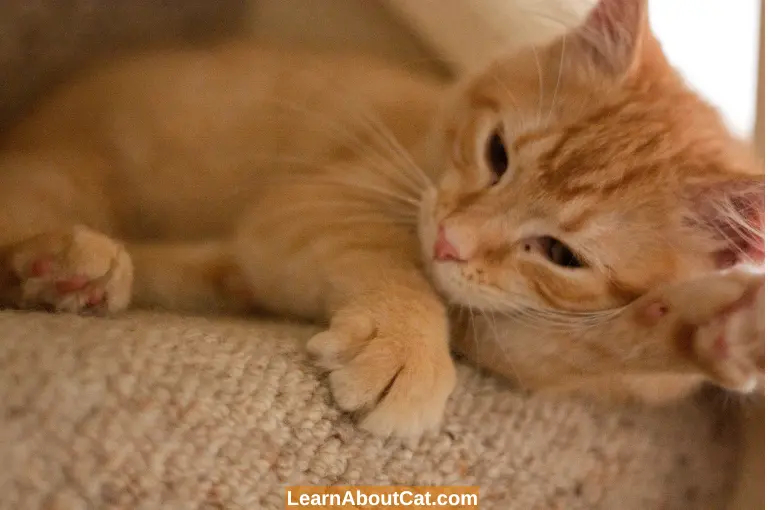
Do Cat Whiskers Regrow?
The whiskers of a cat may regrow if they are cut, harmed, or fall out naturally. Cat whiskers, however, are not merely long, stiff hair. These are cats’ sense organs as well.
Cat whiskers, also known as vibrissae, relay ambient information to the cat’s sensory neurons in a way like a kitty radar by being closely related to the delicate muscle and neurological systems. The cat’s capacity to recognise and respond to changes in its surroundings allows it to have a heightened sense of the sensation.
Does Trimming a Cat’s Whiskers Hurt It?
Cutting whiskers hurts, and it can make cats less spatially aware. They may lose their sense of direction, stumble into objects, be less able to defend themselves from harm, and become less nimble as a result.
Your cat should be in good health if he stays inside. During the next cycle of shedding and regeneration, cats’ whiskers will rejuvenate. In contrast to men’s bristly facial hair, cats’ delicate whiskers act as antennas to transmit nerve impulses to the brain.
The Cat’s Whiskers Myths: The Amazing Power of Whiskers

If our feline friends had online dating profiles that detailed all of their beautiful traits to other interested felines, the cat’s whiskers would surely be a category.
“Fluffy is present. She has a large tail, fancy pointed ears, long, luxuriant whiskers, glossy black hair, and bright eyes. She enjoys tanning while passing judgement on strangers.” The mysteries of these magnificent whiskers are shrouded in several urban tales, ranging from the perils of shaving them to their use in determining your furry diva’s mood. So what occurs when a cat has its whiskers pulled out? Let’s investigate the topic and see what we can discover about cat whiskers.
Is It True or False That Cats Use Their Whiskers to Plot their Escape?
Your cat buddy would make a fantastic 007 thanks to her whiskers! She is secretive, hard to read, and can pick and choose which tiny cracks she can slide through before she gets into a tight situation.
Your pet dog’s body is likely to fit through a gap if her head and whiskers can, which increases the likelihood that she can.
Whether It’s True or Not, The Cat’s Whiskers May be Lucky for You
If the whiskers on your pet seem to bring you luck, they maybe do. Similar to how many human parents keep their children’s missing teeth, some cat owners are grateful for their cat’s lost whiskers and even claim that they bring them luck. It’s still debatable if keeping your cat’s whiskers will turn you into a crazy cat woman.
Can the Cat’s Whiskers be Clipped, True or False?
False!
Never get the whiskers on your pet trimmed. Even while it may feel wonderful to have your human whiskers cleanly shaved, your feline friend won’t have the same sort of hair.
Cats’ whiskers are an important sensory organ. They’re not hairs, those long, thick strands of hair. Each small cat whisker, or vibrissa as it is known in science, is connected to a sensory receptor that sends vital information to your furry friend’s brain. Your cat uses them as her primary sense of space as she moves around the world.
A cat’s whiskers can be chopped, which could make her scared, perplexed, and less aware of her surroundings than she normally would be.
Do Cats’ Whiskers Reflect Their Mood?
Finally, some support! By observing your pet’s whiskers, you may determine how she is feeling. If you know how to read them, you can determine what’s going on behind that serious little face. Different moods may be conveyed by your cat’s whiskers:
Fear: When your cat is terrified, her facial whiskers may flatten down or press up against her face.
When your cat is in a serene attitude, her whiskers will be cool and slightly drooping.
Her whiskers will be sticking out to the side when your cat is agitated or aggressive
Frequently Asked Questions
The Bottom Line on What Happens If You Cut A Cats Whiskers
Your cat’s whiskers are highly specialised hairs that transmit significant environmental information by being coupled to multiple sense receptors. They support cats’ ability to hunt at night, recognise predators, stand up, and explore their surroundings. They are equally crucial for getting around obstacles as standing on top of them.
When a cat’s whiskers are cut, these functions are lost, or at the very least, are lessened. Groomed cats are more prone to get into accidents, fall from a height, get stuck, or run away from their homes. Without their whiskers to guide them, your cat might go through emotional trauma and develop anxiety and tension.
Who is Isabella?
My name is Isabella, and I am a dedicated and knowledgeable cat enthusiast. With years of experience caring for cats and a deep love for felines, I made a mission to help other cat lovers navigate the challenges of cat ownership.


